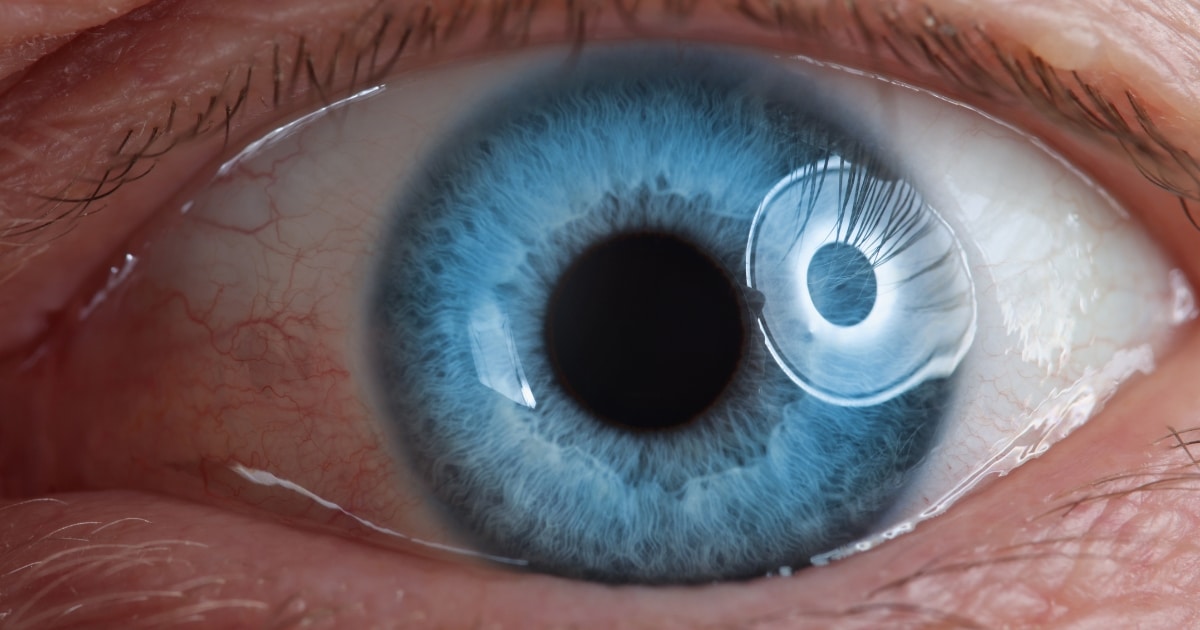Browse Eyewear

Living in sunny Scottsdale, Arizona, we all cherish the vibrant desert landscapes and the endless blue skies. But what if your ability to appreciate these stunning views was suddenly threatened? Retinal detachment, a serious eye condition, can put your vision at risk. If you’re experiencing symptoms, time is of the essence. This blog will shed light on retinal detachment, the potential for blindness, and the crucial role of seeking immediate medical attention.
Understanding the Retina: The Canvas of Your Sight
Imagine the retina as the light-sensitive canvas at the back of your eye. It’s responsible for converting light rays into electrical signals that travel to your brain, creating the images you see. A detached retina occurs when a layer of this vital tissue separates from the underlying support structure. This detachment disrupts the signal transmission process, leading to vision problems.
The Looming Threat: How Long Before Retinal Detachment Causes Blindness?
This is a question that sparks fear and uncertainty. The truth is, there’s no single answer. The speed of vision loss varies depending on several factors, including:
The extent of the detachment:
A small detachment might cause minimal initial vision loss, while a larger detachment can lead to rapid vision deterioration.
The location of the detachment:
The macula, the central part of the retina responsible for sharp central vision, is particularly vulnerable. Detachment in this area can cause significant central vision loss.
Individual factors:
Underlying health conditions and previous eye injuries can influence the rate of vision loss.
While the exact timeframe is unpredictable, some sources suggest vision loss can occur within hours or days of retinal detachment. Studies show that prompt treatment significantly improves the chances of vision recovery. Here’s the critical takeaway: don’t wait to see if your vision improves on its own.

Don’t Let the Race Be Lost: Recognizing the Warning Signs
Early detection is paramount in preserving your sight. Here are some potential signs of retinal detachment to be aware of:
- Sudden flashes of light: Particularly noticeable in low-light conditions, these flashes could resemble lightning streaks or camera flashes.
- A dramatic increase in floaters: These are tiny specks or cobweb-like shapes that drift across your vision. While some floaters are harmless, a sudden increase can be a warning sign.
- A veil or curtain obstructing your vision: This shadow-like presence can appear in a peripheral area or move towards the center of your vision, indicating a growing detachment.
- Blurred or distorted vision: This can range from mild blurring to a significant loss of sharpness and detail in your central vision.
Remember: Even if you experience only one of these symptoms, especially a sudden onset, contact Scottsdale Eyeology immediately. Call us at (480) 994-1234 to schedule an emergency appointment. Our team of ophthalmologists in Scottsdale, AZ, is equipped to diagnose diseases which retinal detachment causes and recommend the most appropriate treatment course to save your vision.
Taking Control: Preventive Measures for Retinal Detachment
While retinal detachment can be a scary prospect, there are steps you can take to minimize your risk:
- Schedule regular eye exams: Yearly comprehensive eye exams are vital for early detection of retinal problems, including potential tears or weaknesses that could lead to detachment.
- Protect your eyes from injuries: Wear protective eyewear during sports or activities that pose a risk of eye injury.
- Maintain a healthy lifestyle: Manage underlying health conditions like diabetes and high blood pressure, as they can contribute to retinal problems.
- Be aware of your family history: If you have a close family member with a history of retinal detachment, inform your ophthalmologist during your eye exam.
Securing Your Vision’s Victory: Treatment Options for Retinal Detachment
The good news is that retinal detachment can often be successfully treated, especially if diagnosed promptly. Here are some common treatment methods:
- Pneumatic retinopexy: A gas bubble is injected into the vitreous cavity to push the detached retina back into place.
- Laser photocoagulation: Laser light seals retinal tears, preventing further detachment.
- Scleral buckle surgery: A silicone band is placed around the sclera (the white part of the eye) to provide support and stabilize the retina.
- Vitrectomy: This minimally invasive surgery removes the vitreous gel and allows the retina to reattach.
The success rate of these procedures depends on the severity of the detachment and the timeliness of treatment. Early intervention significantly improves the chances of regaining your vision.
Scottsdale Eyeology: Your Partner in Preserving Sight
At Scottsdale Eyeology, we understand the anxiety and urgency associated with retinal detachment. Our team of experienced ophthalmologists utilizes advanced diagnostic techniques and offers a comprehensive range of treatment options. We prioritize prompt evaluation and work diligently to restore your vision.
Don’t gamble with your sight. If you suspect retinal detachment, contact Scottsdale Eyeology at (480) 994-1234 or visit our website to schedule an appointment. Located conveniently at 23207 N Scottsdale Rd B105, Scottsdale, AZ 85255, we’re here to help you preserve the gift of sight and continue enjoying the beauty of the Sonoran Desert.
Remember: Early detection and prompt intervention are crucial in preventing permanent vision loss from retinal detachment. By understanding the symptoms, seeking immediate medical attention, and trusting the expertise of Scottsdale Eyeology, you can prevent any permanent harm.
The Takeaway: Value Your Vision, Act with Urgency
Retinal detachment is a serious eye condition that can lead to permanent vision loss if left untreated. However, with early detection and prompt medical intervention, the chances of a full recovery are high. By prioritizing regular eye exams, understanding the warning signs, and seeking immediate attention if you suspect a detachment, you can take control of your eye health and safeguard your precious gift of sight.



